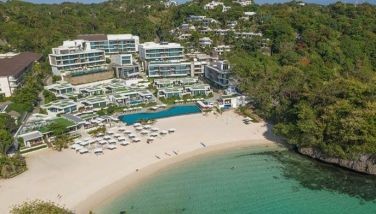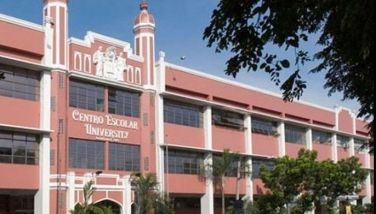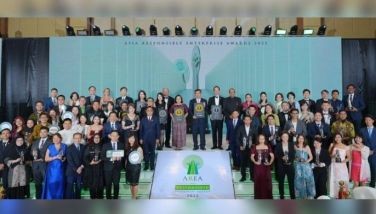MindaNOW and peace
These past few weeks, the Jesuits have been attacked by a college paper that has unwittingly transformed the RH bill issue into a petty cyberwar among the students of Ateneo and the University of Santo Tomas.
Meanwhile, miles away from the mudslinging and name-calling in Manila, Jesuit priests and their lay collaborators are busy understanding a real war through communal learning and reflective dialogue. For these delegates, there is no time for paltry disputes because all energy must be focused on working for peace in Mindanao.
The Jesuit Basic Education Congress is a convention of all Jesuit schools in the country. Through the gathering, novel ideas are generated, new methodologies learned, and divisive societal issues are confronted as one Jesuit Basic Education community guided by the principles of Ignatian spirituality and teachings. Held in Zamboanga, the theme of this year’s congress is “MindaNOW,” encouraging participants to reflect on how, as Fr. Johnny Go, SJ noted, our society has marginalized the people of Mindanao, not just in our history, but in our very own consciousness as well. One of the lofty goals of the congress is for the delegates to correct what we have learned about Mindanao and in so doing, re-imagine our history, this time with full consideration of the island’s rich culture and diversity as well as its dark past and conflict-ridden realities.
During the congress, Fr. Albert Alejo, SJ captivated the audience by revealing that on the surface level, our country is separated into different land forms, but when one dives deeper, we discover how our islands are indisputably interconnected. Despite this union, we have failed to include the aspirations of the people of Mindanao in our national vision. This, despite the fact that Imperial Manila earns big revenues from exploiting Mindanao’s natural resources.
Fr. Alejo explains that our national identity was conceptualized by Manila-centric leaders. It is this mentality that is the root cause of the injustice in Mindanao. The cultural division could only start to heal once Manila recognizes how it plays a major part in the marginalization of the people of the Philippines’ Promised Land.
Challenging educators, Fr. Alejo cites scholar Benny Bacani who said, “Schools are weighed down by baggage and act as a repository of biases against Muslims and Lumads.” To prove Bacani’s claim of a misrepresentation of Mindanao, Fr. Alejo cites lines from textbooks and teaching materials that contain erroneous and insensitive information. Some of the most glaring include the choice of national symbols (lechon, barong tagalog, etc.) that are alien to the culture of both Muslims and the indigenous tribes of Mindanao. One book erroneously describes the Yakan tribe as living in Basilan, having chinky eyes and curly hair similar to those living in Borneo. Talk about not knowing one’s own countrymen!
With gentle laughter to balance his subtle admonition, Fr. Alejo points out that teachers are blissfully unaware of the misrepresentation of Mindanao. When Mindanao is discussed in the classroom, the lessons are mainly focused on geography and a basic ethno-cultural description. The people of Mindanao are forgotten when discussing martial law or other crucial periods in the nation’s history. Most pertinent, Fr. Alejo states, textbooks and teachers do not analyze why there are conflicts and fail to discuss the root causes of many historical atrocities done to our fellow Filipinos in Mindanao.
Fr. Alejo drives the point further by saying our collective bullying of Mindanao is rooted in our attitude of listening only to the majority. After all, the mentality of “majority rules” starts during class elections and other decisions. Such mentality though, if unprocessed, represses a respect for a minority opinion. No wonder then that we carry this mentality from the school to our participation in our societal institutions, therefore resulting in a structural disregard for minority cultures and religions. The funny thing, Fr. Alejo posits, is that when one thinks about it, Christians are the minority in Asia. Fr. Alejo challenges teachers, “Can’t we teach our students to respect and take care of the minority in our society so that we will also be respected as a minority in this part of the world?”
Fr. Alejo’s talk was a convincing and compelling presentation about how schools fail to teach its students a basic respect for minority groups in general and for Mindanao in particular. The wars in the South do not start on its blood-stained fields but in our minds choked by the weeds of prejudices and misconceptions. As we ended our congress, we expressed our solidarity to all our fellow educators in Davao, Cagayan de Oro, and Zamboanga who are at the forefront of uniting Filipinos of different faiths and traditions. But the delegates knew it must not end with well wishes. The congress challenged each and every one of us to return home and venture to the uncharted recesses of our consciousness so as to unlearn the divisive misconceptions we have reaped from our own schooling. In order to weave Mindanao into our nation’s story, as our minds serve as the most fertile grounds for sowing the seeds of respect, understanding, and tolerance.




















